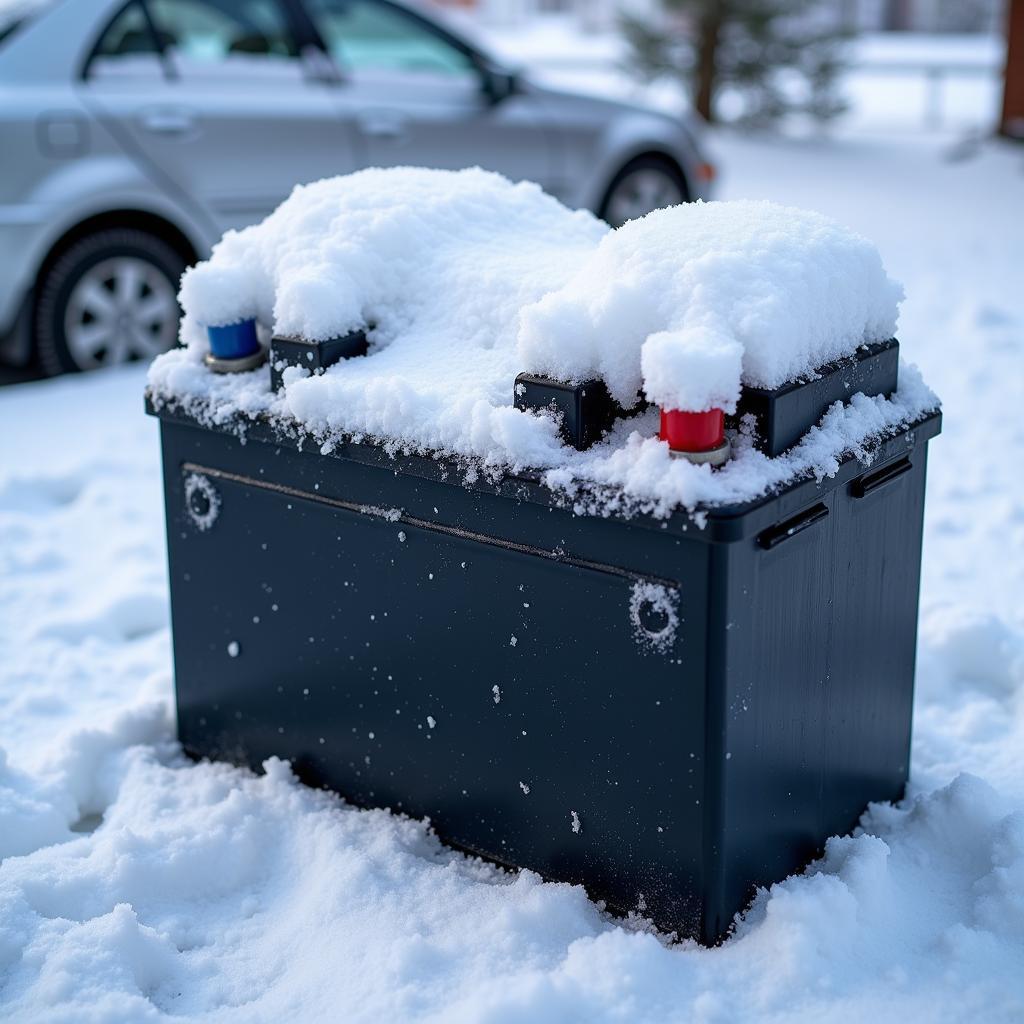Your car won’t start in cold weather? You’re not alone. This is a common problem, especially during the winter months. We’ll explore the reasons why your car might be struggling to start in the cold and provide practical solutions to get you back on the road.
Why is My Car Hard to Start in Cold Weather?
Cold temperatures can significantly impact your car’s starting ability. Several factors contribute to this issue, ranging from battery performance to oil viscosity. Let’s break down the most common culprits.
-
Battery Power: Cold weather reduces battery capacity. This means your battery may not have enough power to crank the engine, especially if it’s already weakened.
-
Oil Viscosity: Engine oil thickens in cold weather, making it harder for the engine to turn over. This increased resistance puts extra strain on the battery.
-
Fuel Delivery: While less common, cold temperatures can sometimes affect fuel delivery. Condensation can form in the fuel lines, potentially disrupting fuel flow.
-
Spark Plugs: Worn-out spark plugs can struggle to ignite the fuel mixture in cold, dense air.
-
Alternator Issues: A failing alternator won’t properly charge the battery, leaving it vulnerable to cold weather drain.
 Car Battery in Cold Weather
Car Battery in Cold Weather
Troubleshooting a Car That Won’t Start in Cold
Now that we’ve identified the potential problems, let’s discuss how to troubleshoot them.
-
Check the Battery: First, check your battery connections for corrosion or looseness. Clean the terminals and tighten the connections. If you have a multimeter, check the battery voltage. A fully charged battery should read around 12.6 volts. If you suspect a failing alternator, why won’t my car start to check its functionality.
-
Try Jump Starting: If the battery is low, try jump-starting your car. Ensure you connect the jumper cables correctly to avoid damage.
-
Warm the Battery: If possible, try warming the battery by bringing it indoors for a few hours.
-
Check the Oil: Ensure you’re using the correct oil viscosity recommended by your car’s manufacturer. Thicker oil is better suited for colder climates.
-
Inspect the Spark Plugs: If your spark plugs are old or worn, consider replacing them.
Preventing Cold Start Issues
Prevention is always better than cure. Here are some tips to avoid cold start problems in the future:
-
Battery Maintenance: Regularly test your battery’s health and replace it if necessary, especially before winter arrives. You can find a reliable replacement at a car battery store.
-
Use a Battery Tender: A battery tender can help maintain your battery’s charge during periods of inactivity, particularly during the colder months.
-
Park in a Garage: If possible, park your car in a garage to protect it from the elements and maintain a slightly warmer temperature.
-
Block Heater: Consider using a block heater in extremely cold climates to warm the engine block and make starting easier.
What to Do If Your Car Still Won’t Start
If you’ve tried all these steps and your car still won’t start, it’s best to consult a qualified mechanic. They can diagnose the problem accurately and recommend the necessary repairs.
 Mechanic Checking Car Engine
Mechanic Checking Car Engine
Conclusion
A car that won’t start in cold weather can be a frustrating experience. However, by understanding the common causes and following these troubleshooting steps, you can often resolve the issue yourself. Regular maintenance and preventative measures can help minimize the risk of cold start problems in the future, ensuring your car is ready to go when you are, even in the depths of winter.
FAQ
-
How often should I replace my car battery? Typically, car batteries last between 3 and 5 years.
-
Can I jump-start my car with any other car? Use a car with a similar battery voltage.
-
What is the best oil viscosity for cold weather? Consult your car’s owner manual for the recommended viscosity.
-
How can I tell if my alternator is failing? Dim headlights and flickering dashboard lights can be signs of a failing alternator.
-
Is it safe to drive my car if it barely started in the cold? It’s best to have your car checked by a mechanic if you experience persistent starting problems.
-
What are some other reasons my car won’t start? A faulty starter motor, ignition switch issues, or a clogged fuel filter can also prevent a car from starting.
-
Should I use fuel additives in cold weather? Some fuel additives can help prevent fuel line freeze-up, but consult your car’s manual for compatibility.
Need further assistance with your car starting issues? Contact us via WhatsApp: +1(641)206-8880, Email: [email protected] or visit our workshop at 276 Reock St, City of Orange, NJ 07050, United States. Our team is available 24/7 to help.


